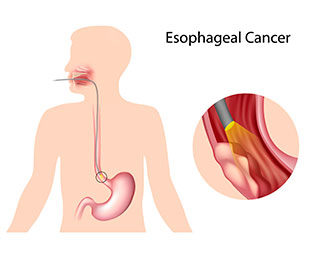Upper Endoscopy  Back to Procedures
Back to Procedures

During an upper endoscopy (also called an EGD, gastroscopy, or esophagogastroduodenoscopy), your gastroenterologist will use a small, bendable lighted tube, inserted through the mouth, to closely examine the lining of your esophagus, stomach, and the top portion of your intestines, known as the duodendum.

Who Needs a Upper Endoscopy?
An upper endoscopy (EGD) is the recommended procedure for patients experiencing symptoms such as persistent stomach (abdominal) pain, vomiting, trouble swallowing, and heartburn or those who have a family history of esophageal cancer.
An EGD can find and evaluate bleeding, inflammation, ulcers, and tumors of the esophagus, stomach, and duodenum. An EGD is useful for detecting cancer, allowing the gastroenterologist at Digestive Health Center to distinguish between cancerous and non-cancerous conditions in the upper GI tract more accurately than an x-ray.
How to Prepare for an Upper Endoscopy?
To prepare for an upper endoscopy, your gastroenterologist from Digestive Health will ask you to refrain from eating or drinking anything for approximately 8 hours before the examination. Your stomach will need to be completely empty. Your gastroenterologist will give each patient very specific instructions regarding when to begin fasting based on when your procedure is scheduled.
Upper Endoscopy at Digestive Health Center in Reno, NV
Digestive Health Center in Reno, NV, offers thorough investigation through upper endoscopy. This minimally invasive procedure, performed by experienced gastroenterologists like Dr. Lynda Hoang and Dr. William Pfau, utilizes a thin, flexible tube equipped with a camera to visualize the inside of your esophagus, stomach, and upper duodenum.
If you’re experiencing concerning symptoms, schedule your appointment with our doctors at Digestive Health Center and take the first step towards understanding and addressing your digestive concerns.
Request AppointmentComplete digestive healthcare from top-ranking gastroenterologists
Schedule an appointment with a Reno GI doctor near you
Set Appointment







 DHA
DHA